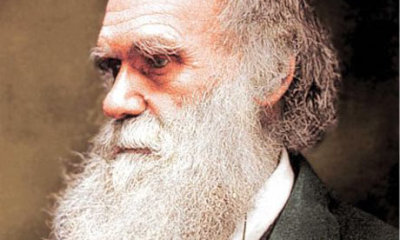The Antarctic ice sheet is one of the two polar ice caps of the Earth. It covers about 98% of the Antarctic continent. Antarctica is considered as a desert as this place is the coldest, driest, and windiest on the earth. It has the highest average elevation of all the continents. Now, NASA ice scientists have found a shrimp-like creature and a possible jellyfish ‘frolicking’ beneath 600 feet of solid Antarctic ice, where only microbes were expected to live.
Continue reading “Complex Life Found Under Antarctic Ice”
Complex Life Found Under Antarctic Ice
The Antarctic ice sheet is one of the two polar ice caps of the Earth. It covers about 98% of the Antarctic continent. Antarctica is considered as a desert as this place is the coldest, driest, and windiest on the earth. It has the highest average elevation of all the continents. Now, NASA ice scientists have found a shrimp-like creature and a possible jellyfish ‘frolicking’ beneath 600 feet of solid Antarctic ice, where only microbes were expected to live.


